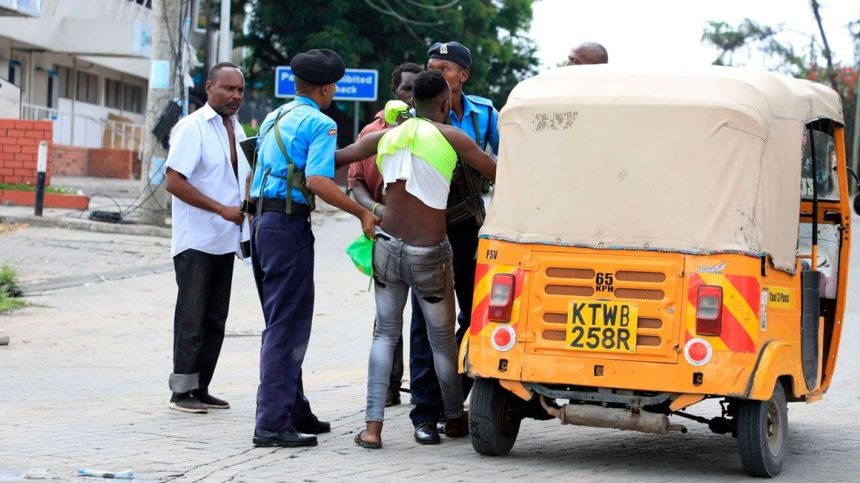A parliamentary committee has backed a Bill that seeks to repeal the idle and disorderly offence in the Penal Code on the ground that it is abused by law enforcers to harass the public.
The Justice and Legal Affairs Committee says the Penal Code (Amendment) Bill aims to protect the public from unwarranted harassment by law enforcers.
The Bill seeks to amend the Penal Code Cap 63 by repealing section 182 which prescribes the offence of idle and disorderly persons.
“While considering the Bill, the committee observed from a majority of the submissions that Section 182 of the Penal Code has been abused by law enforcement agencies to harass the public and infringe on fundamental human rights and freedoms,” George Murugara, who chairs the committee, said.
“The committee is in agreement with the sponsor of the Bill that the section be repealed.”
Section 182 of the Penal Code Act defines idle and disorderly persons to include sex workers behaving indecently in public places.
It also includes a person who causes, procures or encourages another person to beg or gather alms, and one who publicly behaves in a manner likely to cause a breach of peace.
The law also applies to a person who, without lawful excuse, publicly commits an indecent act and one who solicits for immoral purposes.
Those deemed idle and disorderly are liable for an offence that carries a one-month jail term or a fine not exceeding Sh100 or both.
The law prescribes a one-year jail term without an option of a fine for every subsequent offence.
Nakuru Town East MP David Gikaria, who sponsored the Bill, said the proposed amendments would enable a more efficient and effective criminal justice system.
Mr Gikaria said the current law has been exploited by police officers to harass innocent Kenyans.
“The committee, having considered the Penal Code (Amendment) Bill, 2022 and the submissions from members of the public and stakeholders, recommends that the House approves the Bill without amendments,” Mr Murugara said.
The committee said it received nine memoranda from the public on the Bill.
The Judiciary told the committee that the National Council on the Administration of Justice has noted that it has identified several petty offences that should be decriminalised.
“They supported the proposed repeal but noted that the section also makes it a crime to cause, procure or encourage any person to beg or gather alms. According to the Judiciary, a total repeal of the section would result in a gap in the punishment of persons who encourage children to beg on the streets,” says the report.
The committee said the Judiciary encouraged Parliament to undertake a more comprehensive review of the Penal Code to repeal other petty offences.
The Attorney General said section 182 of the Penal Code is discriminatory because it targets sex workers yet other people could also behave in a disorderly and indecent manner.
Independent Policing Oversight Authority (IIPOA) said section 182 of the Penal Code creates an avenue for human rights violations and is vague and ambiguous, making it susceptible to abuse by law enforcement officers.
“Its repeal will enhance relations between the public and the police and allow the police to focus on investigations of serious crimes as opposed to being bogged down with handling petty offences,” IPOA said in submissions on the Bill.
IPOA said in the financial year 2021/22, it received 294 complaints of harassment and 126 complaints of wrongful detention, representing the third-highest number of complaints lodged with the authority.
The Kenya Law Reform Commission said Kenya is one of the few African countries that were under British colonial rule that maintain vagrancy provisions in the Penal Code.
Kenya National Commission on Human Rights said decriminalizing petty offences will among others decongest prisons, reduce the backlog of cases in court and reduce human rights violations to the suspected perpetrators.




